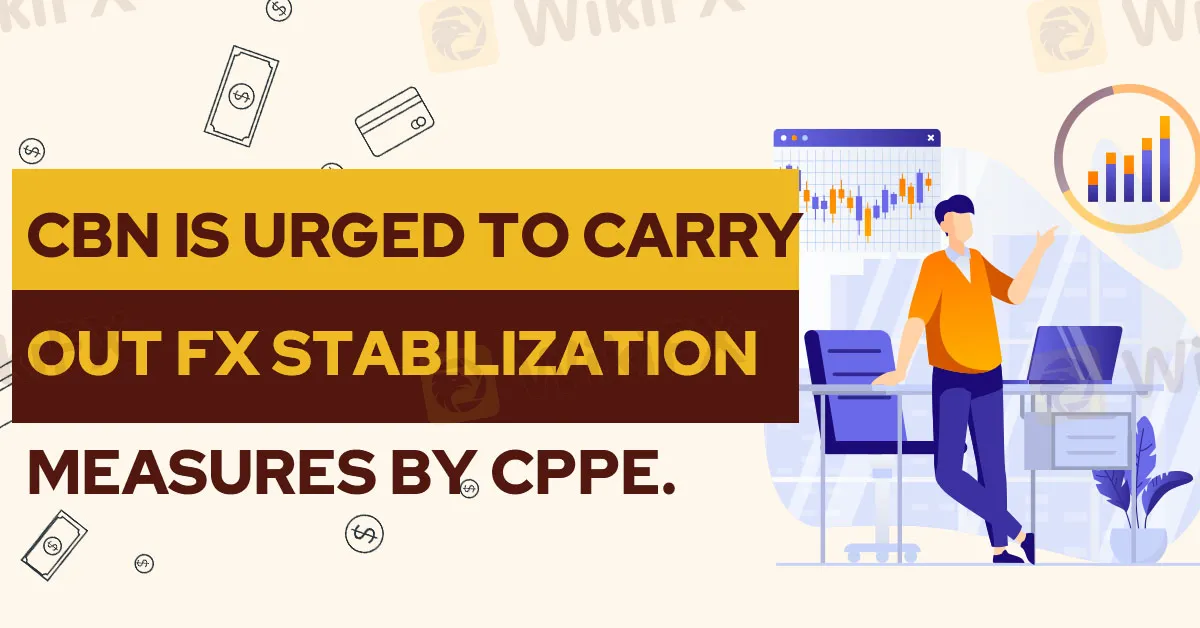简体中文
繁體中文
English
Pусский
日本語
ภาษาไทย
Tiếng Việt
Bahasa Indonesia
Español
हिन्दी
Filippiiniläinen
Français
Deutsch
Português
Türkçe
한국어
العربية
CBN IS URGED TO CARRY OUT FX STABILIZATION MEASURES BY CPPE
Abstract:The FX market is an international, decentralized, over-the-counter platform where currencies can be traded.

The FX market is an international, decentralized, over-the-counter platform where currencies can be traded. The FX rates for each currency are set by this market. It covers every facet of purchasing, selling, and converting currencies at established or current rates. It is by far the biggest market in the world in terms of trade volume, with the credit market coming in second. The bigger international banks are in this industry. With the exception of weekends, financial hubs all over the world serve as anchors for trading between a variety of different types of buyers and sellers. Because currencies in pairs, the market price of one currency established when paid for with another establishes a currency's relative worth rather than its absolute value.
The Central Bank of Nigeria has been asked to take the actions suggested by the Center for the Promotion of Private Enterprise (CPPE) in order to lessen the strain on the FX market.
Provided by CPPE CEO Dr. Muda Yusuf during a Friday interview in Lagos with the News Agency of Nigeria (NAN).
Yusuf discussed strategies to increase market stability and liquidity.
As I understand it, the CBN has cleared up to 70% of the backlog. However, this effort made an impact on certain banks. “In my opinion, that represented the FX market.”
In order to mobilize a lot more liquidity, the CBN have informed us of further actions they are doing.
For example, the plan to securitize our dividend from Nigerian Liquefied Natural Gas in order to exchange money from a few banks.
The NNPC then made Forward sales of crude. In order to obtain some money, the government was also negotiating something with AFREXIM Bank.
Efforts made to increase crude oil exports because increasing output will undoubtedly increase FX inflow. Thus, these are the actions that have been done, and work, he stated.
The head of CPPE voiced concern over the slow pace of real results manifesting.
“How soon these will now begin to turn into a different thing,” he said. “At least we have seen some impact it had on the market and the naira with the clearing of some backlog.”
Once more, it's hard to say how sustainable they will be; it all depends on how successful the government can be.
The key takeaway is that the market will start to exhibit more long-term stability if successful in implementing some of the initiatives that have been mentioned.
“It depends on how much, the important thing is that efforts are being made, and the president has been traveling to entice investors to come.”
“Of course, if we are successful in that, there will also be some inflows into the economy, though those may be medium- to long-term.”
Speaking about inflation, Yusuf pointed out that FX had an impact on and a control over food inflation.
He continued by saying that there was a direct correlation between inflation and the exchange rate.
He said we would be able to control inflation if we could stabilize the exchange rate.
Because of the economy's reliance on imports, changes in the FX market will have a result on inflation whenever there is a depreciation.

Disclaimer:
The views in this article only represent the author's personal views, and do not constitute investment advice on this platform. This platform does not guarantee the accuracy, completeness and timeliness of the information in the article, and will not be liable for any loss caused by the use of or reliance on the information in the article.
Read more

Will natural disasters have an impact on the forex market?
The forex market is known for its rapid responses to global events, but the influence of natural disasters, such as earthquakes and typhoons, can be less straightforward. While headlines may scream about catastrophic damage and economic disruption, the long-term effects on currency values often depend on a blend of immediate shock and underlying economic fundamentals.

Why does your mood hinder you from getting the maximum return from an investment?
Investment decisions are rarely made in a vacuum. Aside from the objective data and market trends, our emotions—and our overall mood—play a crucial role in shaping our financial outcomes. Whether you’re feeling overconfident after a win or anxious after a loss, these emotional states can skew your decision-making process, ultimately affecting your investment returns.

Stock Market Trading Volume Drops by 97.58 Billion Naira This Month
In February, Nigeria's stock market trading volume dropped by 97.58 billion naira, with foreign investors pulling back. Can domestic investors sustain the market?

The One Fear That’s Costing You More Than Just Profits
The fear of missing out (FOMO) is NOT what you think it is! Read the three lesser-discussed components that contribute greatly to FOMO trading!
WikiFX Broker
Latest News
How Crypto Trading Transforms FX and CFD Brokerage Industry
FCA Warns Against 10 Unlicensed or Clone Firms
CySEC Warns Against 14 Unlicensed Investment Websites
Top Currency Pairs to Watch for Profit This Week - March 31, 2025
Will natural disasters have an impact on the forex market?
Philippines Deports 29 Indonesians Linked to Online Scam Syndicate in Manila
Exposed: Deceptive World of Fake Trading Gurus – Don’t Get Fooled!
AI-Powered Strategies to Improve Profits in Forex Trading
Stock Market Trading Volume Drops by 97.58 Billion Naira This Month
Why does your mood hinder you from getting the maximum return from an investment?
Currency Calculator







